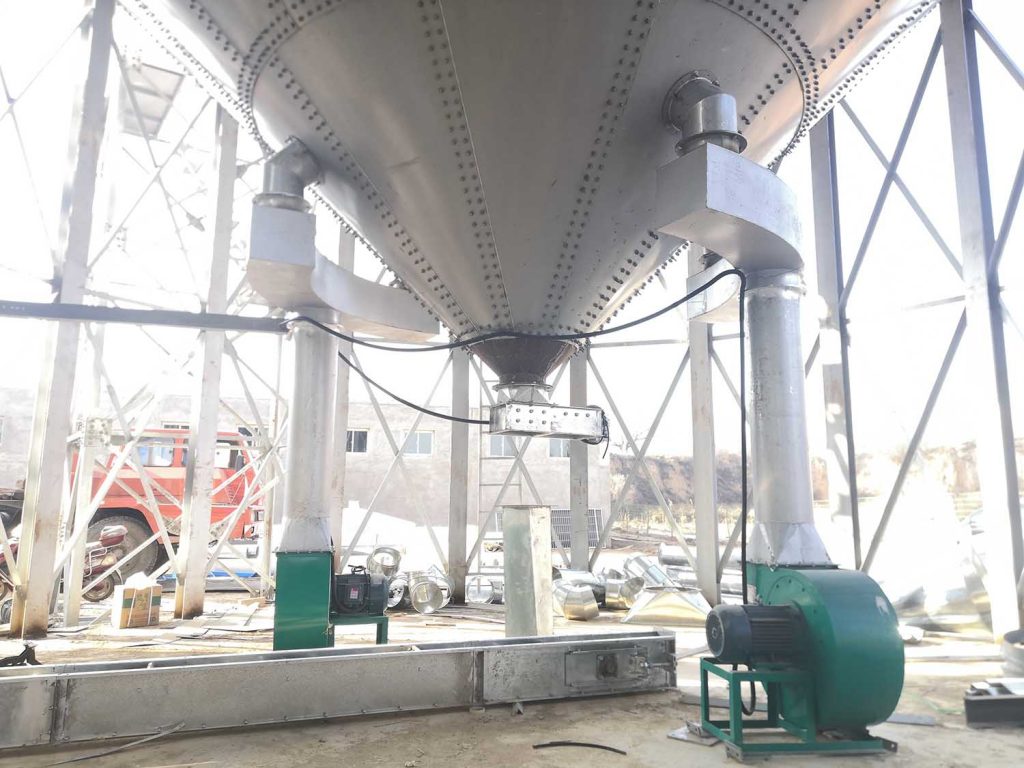Ventilation systems use scientific design and precise control. They effectively regulate the internal environment. This creates ideal storage conditions for grain.

Selection and Application of Ventilation Modes
Natural Ventilation
Natural ventilation is a basic system technology. It designs vent positions and orientations properly. Then it uses natural wind and temperature differences. These promote natural air flow inside the silo. Natural ventilation works well in dry, cool weather. It effectively reduces internal temperature and humidity. This lowers grain respiration and saves energy.
Mechanical Ventilation
Mechanical ventilation is the core system technology. It installs fans, ducts, and other equipment. This provides stable airflow for precise environmental control. Mechanical ventilation removes moist, hot air quickly during hot, humid seasons. It reduces grain storage risks. Systems use different modes like cooling, drying, and equalization ventilation. They match specific goals and grain characteristics.
System Design and Layout
Matching Silo Type with System Design
Silo type determines the ventilation design plan. Flat warehouses, vertical silos, and shallow round silos have different structures. Each requires unique ventilation system features. Flat warehouses often use ground duct ventilation. They place air ducts on the floor. This lets air pass evenly through the grain pile. Vertical silos typically use wall ventilation or duct systems. They guide airflow through wall vents or internal ducts. This achieves grain cooling and ventilation.
Impact of Grain Characteristics on System Layout
Different grains have different respiration, particle size, and flow characteristics. These traits significantly influence ventilation system layout. For example, corn has strong respiration and large particles. Its ventilation layout needs higher airflow and pressure. This ensures air penetrates the grain pile effectively. It carries away excess heat and moisture.
Selection of Ventilation Equipment
Fan Selection
Fans are key equipment in grain ventilation systems. Their selection directly affects ventilation results and energy use. Axial fans and centrifugal fans are common types. Axial fans deliver large air volume with simple structure. They install easily and suit long ducts with high airflow needs. Centrifugal fans provide high pressure and flexible airflow adjustment. They work well in silos needing high resistance ventilation.